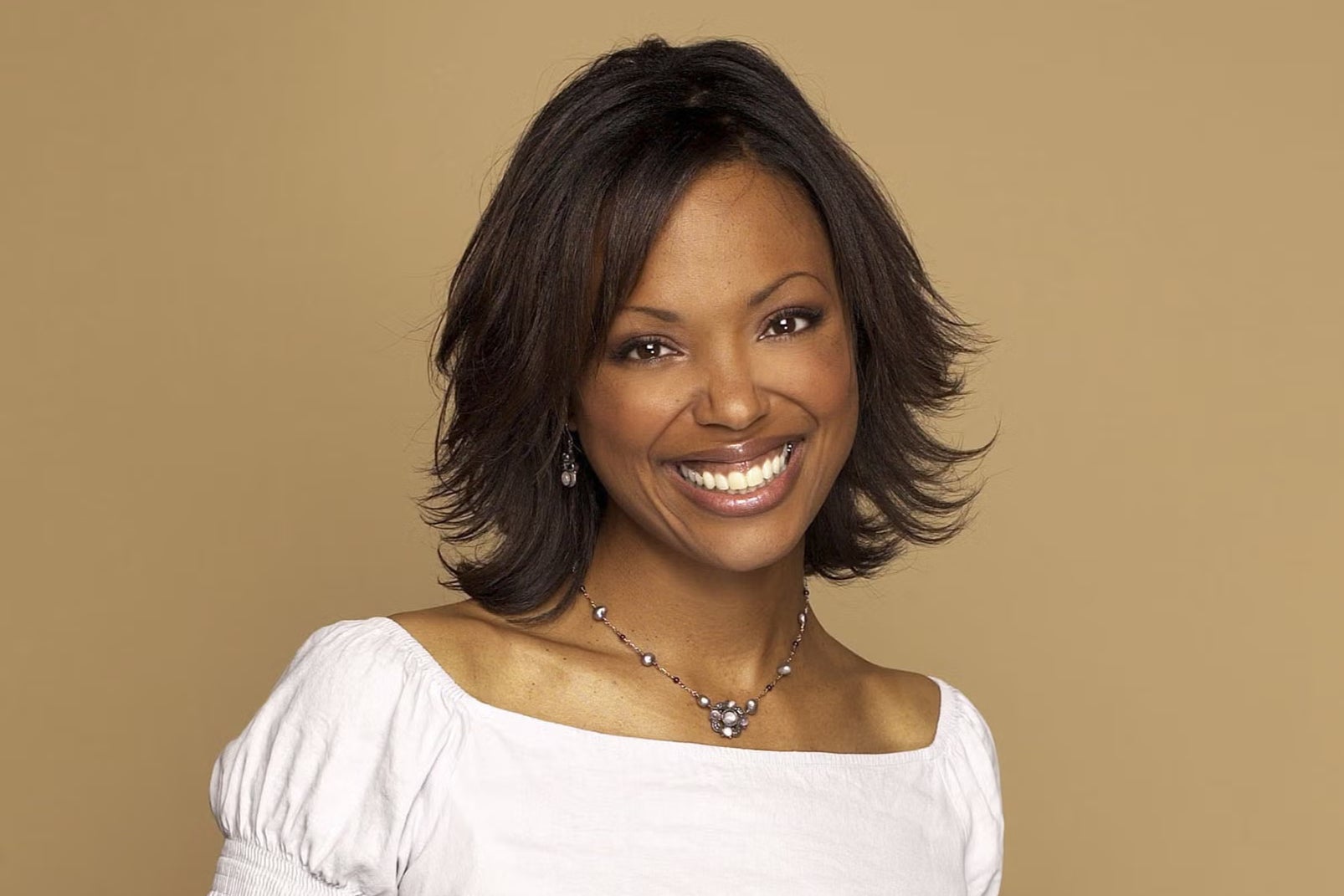
Your support helps us to tell the story
In my reporting on women's reproductive rights, I've witnessed the critical role that independent journalism plays in protecting freedoms and informing the public.
Your support allows us to keep these vital issues in the spotlight. Without your help, we wouldn't be able to fight for truth and justice.
Every contribution ensures that we can continue to report on the stories that impact lives

Kelly Rissman
US News Reporter
Actor Aisha Tyler has reflected on her role as the first Black recurring cast member in the hit Nineties sitcom Friends, as it celebrates its 30th anniversary.
Tyler joined in the ninth season in 2003, playing Ross’s (David Schwimmer) palaeontology professor girlfriend Charlie, who first dates his best friend Joey (Matt LeBlanc).
In an interview with The Independent, Tyler, 53, recalled how she used to hear passersby shouting out: “Black girl from Friends!”
“It was such a common refrain at the time,” she said. “It wasn’t like it was just something that people looked back at later and said, ‘Wait a minute.’ No, at the time, people talked quite a bit about the fact that, for a show that was set in the heart of Manhattan, it really lacked diversity. But we didn’t have social media back then, so it wasn’t the large-scale conversation that it became later.”
Tyler agreed with the suggestion that her character’s introduction was somewhat less clunky than the ones in HBO’s Sex and the City sequel And Just Like That, which were viewed by many critics as an “over-apology” for the original show’s lack of representation.
She continued: “There was nothing in the writing of my character or in the stage directions that indicated that Charlie was supposed to be a woman of colour. I know that David has said that he really pushed for that [more diversity] and I think that’s wonderful.
“But what I liked was that they just wrote this smart, sexy character and she happened to be Black and they weren’t trying to seismically change what the show was, but they were aware of the fact that it didn’t feel totally representative of the world as it existed then or had existed for many, many, many decades. So I knew that me coming on the show was an aspect of that self-reflection.”

Tyler said she believed that Friends was reflective of the wider TV and film industry that thought “only white stories sold”.
“I mean, that’s just been the attitude in Hollywood for a long time,” she said. “They’d say people won’t watch a show with these characters, and now we all know that’s not true. But that perspective still persists and there are still people who will say, well, that movie won’t sell overseas if it has a Black lead, and that movie won’t sell in these markets if it has a gay lead.

Watch Apple TV+ free for 7 days
New subscribers only. £8.99/mo. after free trial. Plan auto-renews until cancelled

Watch Apple TV+ free for 7 days
New subscribers only. £8.99/mo. after free trial. Plan auto-renews until cancelled
“Or they say, ‘We have our one Black show. We don’t need another one.’”
She recalled one project where she was rejected due to filmmakers having already cast a Black character: “I’m like, ‘Have you never seen two Black people in the same room in the real world? Is there just one of us? Are we like Superman and Clark Kent? When I leave the room, does Kerry Washington come in? And then you find out later we’ve been exchanging masks?’ It’s just ridiculous!”

She said she believes this “ridiculous set of beliefs” was gradually shifting as “more women and more people of colour and other excluded groups, and the LGBTQAI community, get behind the camera and tell their stories”.
“We know that great stories are human stories, and they’re varied and diverse and compelling and people want to learn about people and have experiences that they haven’t had before,” she added.







